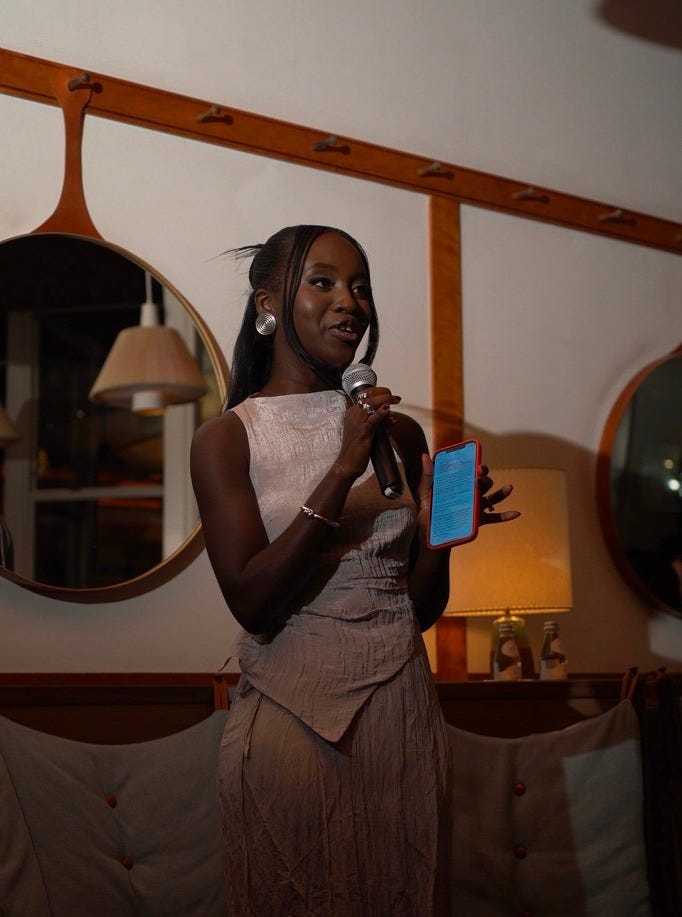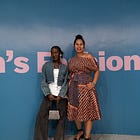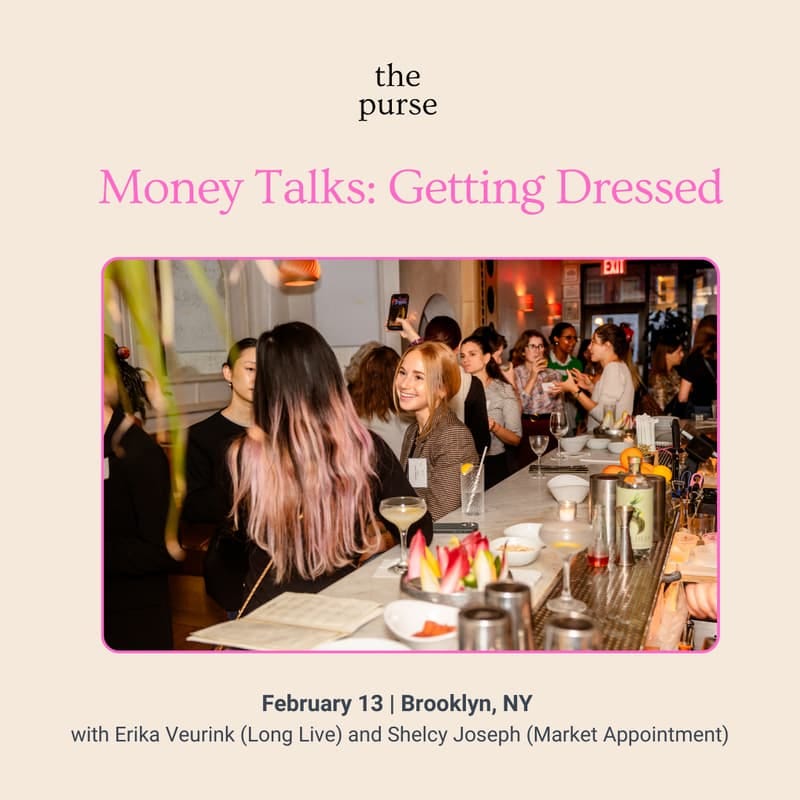Market Appointment Live is Back!
You're invited to Lost Histories: Black Fashion Designers' Legacy 💌
I am excited to share two events happening this month: a talk I’m hosting (Market Appointment Live is back!) in honor of Black History Month and another event
—who writes the informative newsletter The Purse—invited me to participate in.First, my live conversation series is back on Tuesday, February 25, with the illustrious Elizabeth Way. Elizabeth is the Associate Curator of Costume at The Museum at FIT, a historian whose research has greatly expanded my knowledge of Black fashion. I am in awe of Elizabeth’s intellect, which I experienced firsthand during our in-person conversation about Africa’s Fashion Diaspora, the exhibition she curated last fall. But before this, I had a pretty good sense from reading at least two books she edited, a favorite being Black Designers in American Fashion, which chronicles Black people’s contributions to fashion from slavery to recent history. I cannot recommend it enough!
Here’s a passage I think about often:
As wearers and makers, enslaved people were at the forefront of the nascent modern American fashion system that began to develop during the late eighteenth century and was solidifying its position by the mid-1800s. The patterns of consumption and approaches to wearing textiles and clothing that ultimately became what is today called fast fashion were first experienced by enslaved people. By expanding the history of the rise of fast fashion much further back than the standard narrative of its birth during the 1960s, it is evident that enslaved people were also implementing the tools of resistance that are resurfacing in the early twenty-first century to combat a fashion system driven by poor quality, ill-fitting, impersonal products.
When Sylvia Cannon was not provided with warm undergarments for the winter, she made a "petticoat out of old dress a patch en patch till couldn' tell which place weave." Her description of a repurposed dress so heavily patched that the original parts could not be distinguished from the added scraps is an example of visible mending. In her case, the need for winter clothing resulted in a moment for self-expression and individualization.
I think about this book in the context of Trump’s attack on DE&I, which will ultimately have the effect of burying stories.
Black stories. Why do they continue to be weaponized?
Black Designers in American Fashion isn’t a light read; you will be confronted with the brutality of slavery and colonialism’s lasting effect on representation, but you will also meet a number of unsung Black heroes—from Elizabeth Keckly, Harriet Jacobs and Ann Lowe to Ruby Bailey, Jay Jaxon and Willi Smith. Their stories might inspire empathy, open your eyes to Black excellence, challenge preconceived notions and, who knows, radicalize you.

The fight against these stories—the banning of critical race theory books and the algorithmic silencing of minority voices—will make it far too easy to never be confronted with “otherness”, but it is precisely what has and continues to enrich every aspect of our society. When did we become so comfortable with the illusion of reality that reality itself has become impossible to bear?
In a society indoctrinated in the myths of meritocracy and American exceptionalism, doing away with DE&I becomes an easy idea to rally behind, but for the empaths, intellectually curious and open-minded among us, do we want to leave in the culture-poor world it will leave behind? It is on us to resist and stand for racially diverse newsrooms, bookshelves filled with different authors, multifaceted TV shows, well-funded Black studies departments, a diversity of brands in our closets, and affordable cities.
My primary form of resistance is engaging with ban-friendly books and cultivating spaces for safe and welcoming conversations. I am so honored to have the chance to pick Elizabeth’s brain again, and I hope you can join us at the end of the month. I am also currently in talks with two other other speakers so stay tuned for potential new additions to the lineup.
The details:
What: Lost Histories: Black Fashion Designers’ Legacy
Who: Elizabeth Way (potential new speakers TBA)
When: Tuesday, February 25, 2025
Time: 6 - 9 PM EST
Where: The Standard, High Line
If you’re interested, please RSVP here.
Last but not least, I will be joining the women behind
tomorrow at one of their Money Talks. I’ll be in good company with and also participating. Building on my quotes in this interview, I will be leading a discussion on developing and refining your personal style, a perennial topic of fascination.As a subscriber, you can use code SHELCY at checkout for a free ticket. RSVP link here.
Until next time,
Shelcy








Probably the only time I regret not being in the US 😢.
PS: Your newsletter is one of the few I follow that seamlessly bridges online and offline which is fabulous to see!
I was traveling for the event this week, but excited to attend the next one!